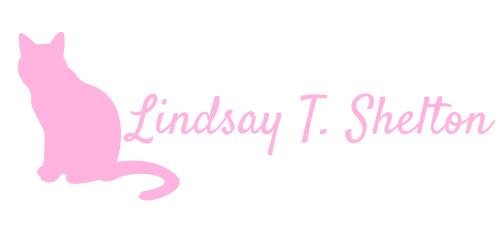Changing Careers During a Pandemic
Posted on June 26, 2020 • 7 minutes • 1375 words

Growing up, I always knew I was going to become a teacher. Sure, my first choice was famous actress, but my solid backup plan was always elementary education. The only time I questioned my plan was when I entered freshman year of college and realized — not only did I not want to teach math and science, but that small children were kind of scary to me. So, after one semester, I changed my major to Secondary English Education and I was back on track for my life plan. This plan didn’t even change when I graduated in 2008 and received certification with my 5-year program in 2009, when the Great Recession hit. Suddenly, all of my classmates were either changing careers or going back and finishing their master’s degrees, but I needed an income. I worked for a year as a substitute teacher and went back to the grocery store I had worked at in high school. The year after, I ended up moving three hours away for my first teaching job. After three years, I got a teaching job in my hometown of Kansas City and — BOOM — I felt I was done veering onto the shoulder of the road and finally was on my life path.
Something I hadn’t realized during my first several years of teaching, which were very regimented and guided by my cadre of fellow teachers, was how differently I wanted to do things when left to my own devices. Yes, I was trained in various methodologies and practices in my new district, but there was a lot more freedom in how I wanted my classroom to work. As I was solely teaching writing during this time, I saw a huge benefit in the research I completed in the collaborative powers of the Google Apps for Education suite and how it could benefit my students and me in providing feedback and collecting data in a digital fashion. This awoke a part of me that I had embraced wholeheartedly as a child but only occasionally resurfaced as an adult — my aptitude for technology.
There’s a picture of me on my dad’s lap back in 1988 on our first home PC. I still have my floppy disk Sesame Street games where, as a small child, I’d type in a series of commands to get my games to run. I shared my first internet experience as an elementary schooler with my students as an example of what not to do, saved from scarring myself for life only by the speed of the dial-up connection. In middle school, I made an Archie Comic fan site, because my dad had started branching out from the family business and teaching himself web and graphic design. I loved technology, grew up at a pivotal turning point in the rapid expansion of home technology, and I somehow forgot about this passion as I grew older and became more fixated on my teaching path.
My dad has since passed, but I reflected on his aptitude for learning new technologies and knew that he had passed that onto me as well. So, I dove in. My third year in the district, I asked to pilot a Chromebook monitoring application and provided feedback to the district. I made the commitment to go paperless in my classroom as soon as I heard I was getting my own Chromebook cart. I taught myself about the tools and talked about them so much that I was asked to lead trainings at the building and district level for other teachers. I guess I shouldn’t have been surprised when administrators asked me at year-end to become trained as a Project Lead the Way (PLTW) teacher, a pre-engineering STEM curriculum.
The only problem with spending the next four years as a technology and PLTW teacher is that I stopped growing. I wrote the curriculum for one class and modified the curriculum for another class, and then that’s all I taught over and over all day, year after year. The opportunities to share my learning with others stopped, and the opportunity for vertical growth wasn’t there.
In the spring semester of my ninth year of teaching, I tried to get out. I got on LinkedIn for the first time and tried to dive in and learn about the “real world” of job searching. Teaching is a very insulated field with a very standard way of doing things; suddenly, I felt like I was fresh out of school applying for a job for the first time. It didn’t help that I didn’t really know what I was going to do. I applied for whatever internal training positions and technical writing positions I could, figuring those were the best ways to leverage my education background into another field. That led me nowhere. The people in my life also constantly reminded me that I had a guaranteed 12-month paycheck, benefits, and tenure — all important things as a single person. I reluctantly prepared for another year of teaching, as we are locked into year-long contracts, and another 10 months of teaching when I was already burned out, felt bleak.
I met Sharon Weaver that summer, staring down my 10th year of teaching. It was almost like fate, meeting her at my cousin’s wife’s best friend’s adoption party. Now, for someone who was craving change, I was still very scared of it, and this was a woman who thrived on change. We immediately got along, and after I reluctantly told her about what I did (because I dreaded continuing to do it), she set up a lunch meeting with me. At that meeting, she introduced me to tech consulting. This was a field I’d never heard of, but Sharon’s passion and growing belief in me really compelled me. It would be a field filled with constant new challenges, where my natural aptitude with technology would be necessary, and where my experience with teaching would be an asset rather than a deterrent.
I freelanced for Sharon the rest of the summer and on and off during the school year. She told me early on that if she could afford me, she wanted me as a full-time employee when I was done with the year, but that she’d also help me find a position if not. I had hopes for getting out at the end of the year, but hopes is all they were.
Then, two interesting things happened in March — Sharon confirmed with an offer letter that she was serious about wanting to hire me, and my fears about what it would be like to work from home became a non-issue when a global pandemic struck. I quickly realized that I could be productive from home because I had no choice — the schools closed and we had to pivot to online learning. My fears of change were a non-issue because, suddenly, even the way I had taught for the last 10 years looked very different without me having any choice in the matter. The next school year was and is as uncertain as anything else was, so why not choose now to change my whole life?
Four weeks into my official career change, I have absolutely no regrets. The hoarseness I’d been experiencing on and off for years is gone. I’m sleeping better at night. I have the energy to go on social distance walks with friends. I even re-committed to losing the weight I’d put on in the years I’d been back in Kansas City. I receive positive affirmations at work, and especially working with a group of women, the few times I’ve gotten stressed and worried, they sensed that and helped soothe my nerves. Sure, the future is uncertain, but the future for most people in most fields is at least somewhat uncertain. What isn’t uncertain is that deviating from my path has prompted me to value my own worth and be willing to make more changes in the future. I’m sure that some people have found and followed a linear path in life and that it has worked out well for them, but I’m learning more and more that I might not be one of those people and that’s even better than I had realized.
